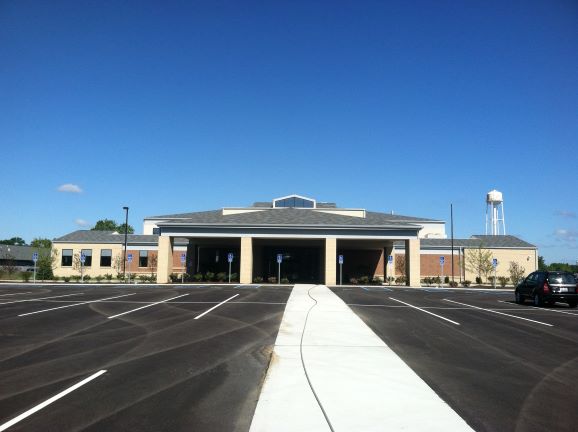Every day, the horrors of war push at least one Iraq or Afghanistan war veteran to commit suicide — a statistic that 1,600 new mental health professionals throughout the nation’s Veterans Affairs (VA) system will soon begin fighting.
The federal announcement of the increase in clinic staff follows a 35 percent increase in demand for mental health help across the country, said Rep. Marcy Kaptur.
She said the change is a transformative one.
“This is a legislative battle that I have fought in Washington since my early years. It’s been three decades of effort to try to get the Department of Veterans Affairs to give equal attention to neurological damage as they do to spinal cord injury,” Kaptur said.
At least nine of the new mental health professionals are coming to theToledo and Ann Arbor region, following a few years of increased mental health service requests.
Since 2007, the VA Ann Arbor Healthcare System, which operates Toledo’s Outpatient VA Clinic, has added 30 percent more mental health staff, said Robert McDivitt, director of the VA Ann Arbor Healthcare System.
The announcement also coincides with Toledo’s new outpatient VA clinic, slated to open this fall.
The current clinic on Glendale Avenue was built in 1978 and covers 30,000 square feet. It will move into a new space at 1200 S. Detroit Ave. that will cover 66,000 square feet.
McDivitt said the system expects to care for 12,000 veterans this year.
A few years ago the clinic was handling at least 2,000 fewer patients.
The Toledo clinic has 110 staff members and the new one will employ about 122.
“We really outgrew the space,”McDivitt said.
Increased local service
In the past, patients needing cardiac stress testing, diagnostic testing for blood flow problems and audiology testing services had to travel to Ann Arbor for treatment. But the Toledo clinichas added some of these services within the past year, and will soon build on them further with the new building.
Doctors will be able to perform occupational therapy in the new facility, a service not available at the Glendale Avenue location, said Leo Greenstone, associate chief of stafffor ambulatory care.
The system is also recruiting a psychologist to conduct compensation and pension exams for the first time in Toledo, a service that vets were traveling to Cleveland for in the past, McDivitt said.
Telemedicine has helped boost treatment at the Toledo clinic as well, linking a doctor in Ann Arbor into a video conference with patients in Toledo to save local veterans a few trips north, said Stephen Chermack, chief of mental health.
Caring for patients with posttraumatic stress disorder (PTSD) is a process that varies with each veteran, Chermack said. Treatment typically consists of a combination of pharmaceutical drugs and psychotherapy. He said some veterans choose to stabilize other factors in their lives before starting to address memories that trigger depression and reoccurring, disturbing thoughts.
More work needed
Kaptur said more work still needs to be done. Patients will still be unable to access infusion treatments for cancer. A free bus transports 40 to 60 veterans a day from the Toledo clinic to the Ann Arbor hospital.
“The Ann Arbor Veterans Hospital is a massive facility and because it’s so large it consumes a lot of time in finding parking. We have vets who go up there for cancer infusions, they’re made to wait all day to go back on the bus and it’s not very pleasant,” Kaptur said. “And for those with neurological conditions, you have to have services close to where people live and work. To make someone travel an hour and wait all day and wait weeks for an appointment doesn’t work.”
The Arms Forces
A Maumee woman founded a nonprofit called The Arms Forces in 2009 because of what she saw as a lag in services for people s u f f e r i n g from traumatic brain injury and PTSD . Pam Hays, herself a traumatic brain injury survivor, has since linked at least 200 veterans to services that will help them cope. She and a volunteer coordinator are the main operators of the organization.
“It’s a complicated, convoluted system for anyone, and if you have someone coming back with a brain injury or PTSD , they’re going to have cognitive challenges and they’re going to have a much more difficult time accessing that system,” Hays said. “The way we try to do everything is very simplified. We want to meet [veterans] where they are rather than get them to go through hoops to find help.”
The Ann Arbor system is adopting a similar model by initiating an outreach program that sends social workers into communities to search for veterans who may not be linked to VA health services yet, McDivitt said. The system now has six outreach workers who work with homeless and formerly homeless vets.
The new Toledo clinic is designed to not only serve medical needs but educational needs as well. McDivitt described the new layout as a “healing environment,” equipped with a coffee shop and Internet cafe where families can gather. The new site will feature a
veteran resource center and a community meeting room, as well as a “wall of heroes” on which Toledo-area veterans can post their photographs. The design of the new place is “bright, open and sunny,” touched with artwork that is centered around veterans, he said.
“Our mission here in the VA begins with the three words, ‘Honor America’s veterans,’ and you’re going to see that mission reflected from the time the veteran comes inthe new clinic until he or she leaves,” McDivitt said.
For more information, visit www.annarbor.va.gov.























